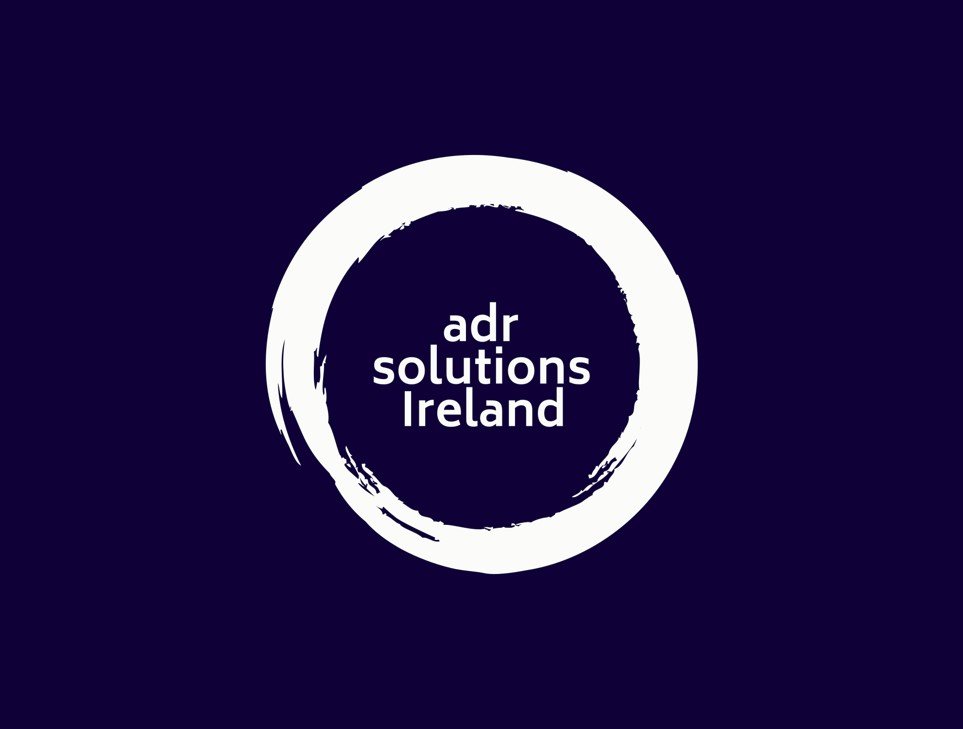
ADR Solutions Ireland offers a bespoke, modern and cost-effective process in which issues can be resolved in a collaborative solutions-based approach.
We’re not your usual 9-5 solutions based process. We work in person, digitally and from 07.00-22.00hrs, often times 7 days a week
Mediation
Mediation is an approach to conflict in which a third party, The Mediator, helps people arrive at a resolution to their conflict. A mediator is both neutral and independent, does not take sides or impose a solution but rather assists clients as they attempt to find their own way through the conflict.mediator.
Why might someone go to mediation?
Effective
Quick
Voluntary
Confidential
Significantly less expensive compared to litigation and arbitration
Flexible
How are is mediation meeting conducted?
The pre-mediation discussions are informal and can occur with in person, or electronically/online.
The process is entirely confidential
The entire process is voluntary and the mediator remains impartial and neutral to both parties throughout to help both parties reach some common ground and hopefully a resolution to the issues which have lead to their conflict.
A mediation can result in a full written agreement, or can result in a memorandum of understanding - depending on what the parties wish for out of this process. (some like a more formal written agreement, whereas some prefer something less formal).
About the mediator:
Only persons specially trained, examined and accredited with a professional body should conduct a formal mediation process.
Whist the mediator will at all times facilitate the process, the mediator will allow all parties to speak, be heard and be understood. Whilst pre-mediation meetings happen all the time, sometimes this process may require 1:1 meetings during the mediation - these are known as caucuses and they are a natural and normal event during a mediation.
The mediator remains neutral at all times and this allows me be as open-minded to everyone’s opinions and solutions and it allows for a more creative and specific solution.
Workplace Investigations
What are they?
As these type of investigations usually involve someone being accused of wrong doing, they are a more formal procedure. The normal evolution of a workplace investigation is that a complaint or concern (of any kind) has been made against someone.
These type of investigations usually arise in the work place and we will have always ask for a copy of the organisation’s policies that govern the working relationships that exist.
On occassion it may also be necessary to have sight of a persons contract of employment and copy of any employment handbook if they exist.
The investigation itself occurs after appointment and only where there is agreement to the terms of reference of the investigation (this sets out what I am asked to investigate and how I propose conducting the hearing).
I then speak with all parties relevant to the complaint, this may also involve reviewing CCTV, emails or communicated messages.
The process is a fully transparent process and any documentation provided to me, by any party is shared with all concerned parties. Conversations had with the parties concerns will be recorded so that a transcript can be prepared and copies of each meeting will be made available to all concerned parties.
Ensuring that this process is a fundamentally fair process for all parties involved in the complaint is a key principle that is maintained throughout. The investigator will obtain a statement from all parties concerned. The investigator will then review the statements and conduct a second round of meetings where matters of disagreement, concern or importance will be put to all parties for their views and answers.
When the investigator has enough material to allow a reasonable, well informed and substantiated understanding of the events in question, a preliminary opinion will issue to all the parties and it will invite any final submissions in writing from the parties. Should a reply be received, it will be considered in light of the overall materials gathered in the investigation and an independent and unbiased decision will be reached based entirely, and only on the evidence obtained during the investigation.
At that point, the decision (and file) is returned to the relevant Human Resource Department and they then take carriage of the matter and consider the outcome with regard to their own procedures.
At no time will the Investigator have any involvement with any disciplinary matters or internal procedures.
Key features relating to an investigation are:
the process is objective based
the investigator is impartial and neutral to all parties in the complaint
there is complete transparency in the investigation at all times
any decision reached is based on clear evidence and recommendations are factual evidence based.
The investigator is, and remains independent of all parties to the complaint.
Designated Support Person
What is a designated support person (“DSP”)?
DSPs are individuals who are identified to provide support to people who may need support from a neutral and impartial person who can attend with a person during a decision making process.
What services are covered by a DSP agreement?
Any person may feel that they need additional unbiased and impartial support during a time in which they are making decisions that are of relevance to them.
A DSP is not someone who can assist where there is an issue with capacity. Specific legislation exists with respect to decision making where capacity is an issue.
Where a legal issue arises, any person will be advised to seek out independent legal advice from a solicitor of their choosing. The Law Society of Ireland maintain a register of legal practitioners who are searchable by name, county and areas of specialist knowledge.
Any process where I engage as a DSP will be confirmed by written agreement which will be bespoke between the parties.
All conversations, documents given and/or documents seen will remain entirely confidential.
At all times, the principles of GDPR will be maintained to the fullest extent possible. It is not uncommon that the person acquiring the service will keep any documentation owned by them.
The DSP will retain any of their notes made during the process (if any are made) and those notes shall be attached to the signed agreement which will be sealed by envelope and retained securely for the required person under GDPR. The said documents will be destroyed after the statute of limitations period has expired.
The Results
“Whatever it is, the way you tell your story can make all the difference.”
— Anon.


